One of our core beliefs is that good nutrition starts in utero for a long, healthy life for our equine friends. Starting with good, balanced nutrition in the womb, through development and performance needs, our horses are living longer, healthier lives. Domesticated horses are living much longer lives due to good nutrition and maintenance, but just like us, age begins to take a toll on digestive health. Read on to learn about the signs of your aging horse and when it may be time to switch to a senior diet.
What Makes a Senior? Check for the Signs.
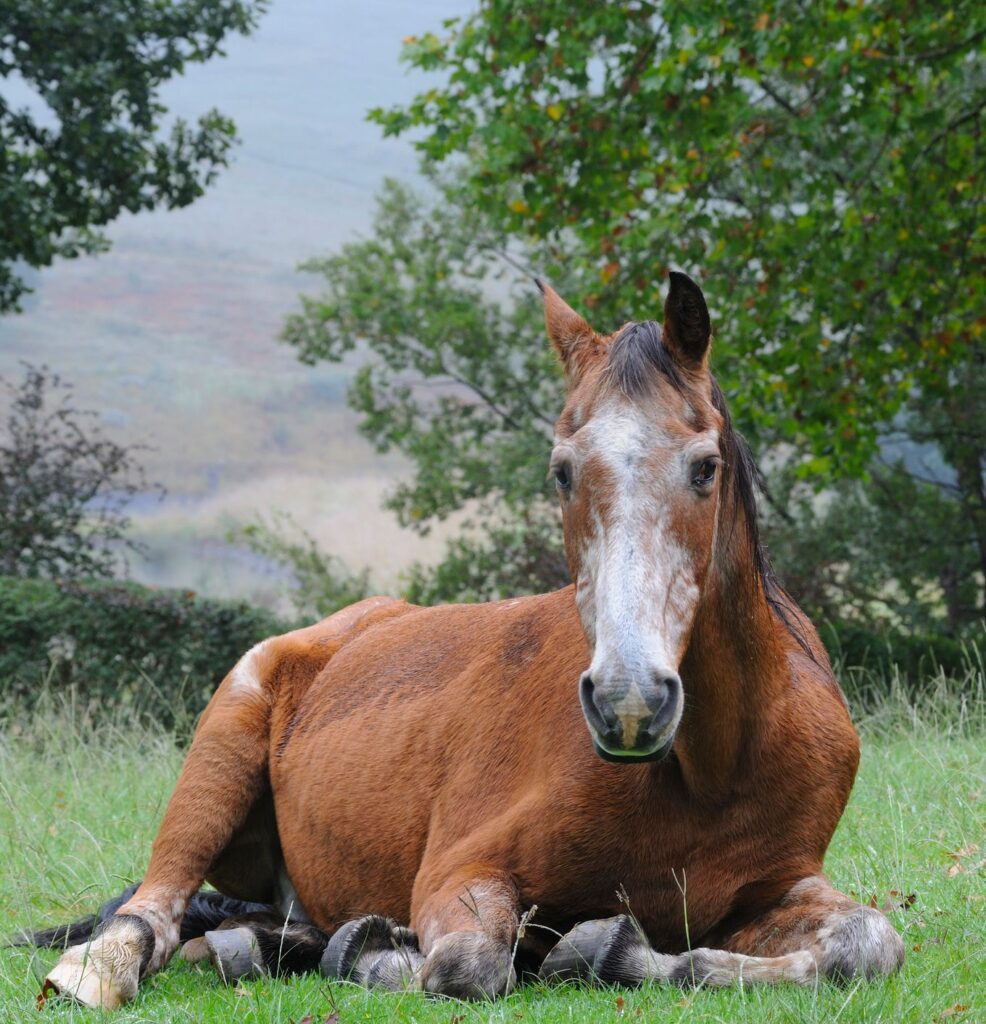
In the past, there used to be a chronological age in which we would consider a horse a senior. Common belief was in the age range of 15+, which progressed along to 18+, and now there are horses still competing in their top form at the highest levels at these ages – just ask eventing Olympian Jessica Phoenix, who says that her 17 year old mount, Pavarotti, “is nine, and he’ll be eight next year” after a stellar Pan Am Games performance last month. With better life long health care and management, “senior” horses can perform and live healthy lives long beyond what was considered a senior age, commonly reaching into the late 20s and early 30s in retirement.
This is why we like to base a senior horse not on their chronological age, but rather their individual physiological age. A horse becomes a senior when he looks and acts that way, whether he is 15 or 25.Some of the signs to look for are the following:
- Horse can no longer maintain body condition on their regular diet; noticing some weight loss, coat and hoof quality diminished on their usual feed regimen.
- Lost topline, muscle wasting or swayback.
- Shaggier hair that takes longer to shed out.
- Teeth loss, food dropping, less efficient digestion, joint issues, Cushings (insulin resistance).
- Changes in behaviour – changes in their pecking order, more time spent in the shade or napping.
Senior Feeding Issues
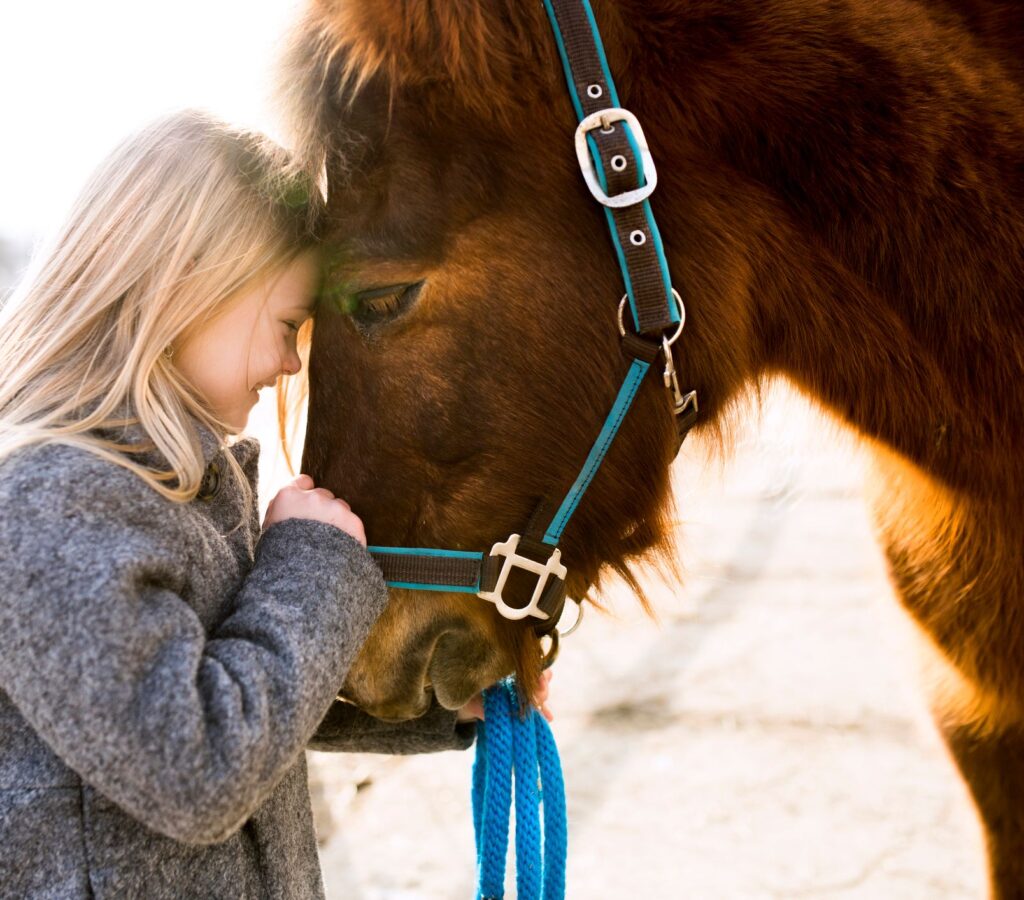
As the senior horse ages, their chewing and digesting of feed is compromised as their teeth start to wear down or fall out and their tract has a harder time absorbing nutrients as it did previously. The ability of nutrients to pass through into the bloodstream is diminished as the effectiveness of the digestive system declines. Nutrient absorption can also be affected by tooth health of the horse – if their teeth are worn or falling out, particles of feed that are not ground down enough that may have been absorbed in their younger years are much more likely to go through their system undigested. Not only does this mean they are not getting proper protein and nutrients, it can also mean that too much starch may enter the hindgut to ferment, raising fears of colic, laminitis, or founder in a more acidic stomach environment.
One of the most common issues facing geriatric horses is pituitary pars intermedia dysfunction (PPID) – popularly recognized as Cushing’s disease, in which excessive levels of various hormones are produced by the pituitary gland. These hormones can affect multiple bodily functions, including but not limited to: regulating blood sugar levels, energy generation and antioxidation. The early signs of Cushing’s disease are well known – abnormal sweating, excessive hair growth or delayed shedding, muscle wasting and lethargy to name just a few. The good news is that even though Cushing’s disease is common in the senior horse, with medication and good nutrition it can be managed to give your horse many happy, healthy golden years.
How to Feed the Senior Horse
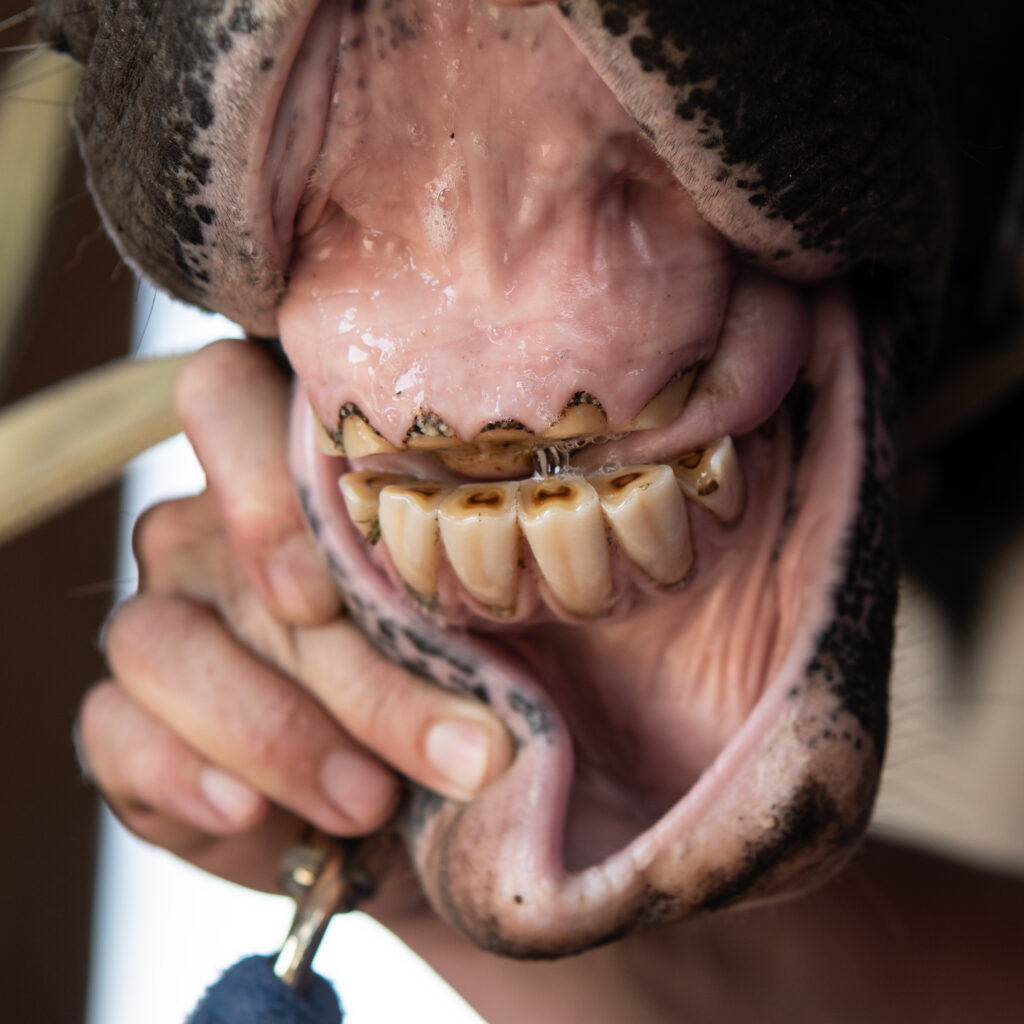
Now that we’ve looked at some of the challenges and common ailments of the senior horse, how do we go about making sure they are getting everything they need to maintain and enjoy their golden years with a happy digestive tract? Of utmost importance, as per horses of any age, is to be sure they are getting enough pasture or forage intake. Seniors still need to have full stomachs as much as possible to reduce the incidence of ulcers and to not upset the balance of the gut. If you notice your senior chewing up and “spitting” out wads of hay or forage, chances are they are unable to grind down the tough stalks and particles they once could.
A common solution to ensure they are getting enough intake is to soak or steam hay to make it easier to grind, and you can supplement the fibre they may be missing with a hay replacer pellet or cube. Ideally, this should not be their full diet, but some geriatric horses require more soaked hay cubes the more their teeth are worn down or lost.
Due to the reduced forage intake and ability to grind down hay, a diet composed of fat and nutrient dense ingredients is required, rather than feeding higher amounts of grain. Remember, reduced ability to absorb nutrients means too much pelleted feed could go through to the hindgut undigested. Therefore, smaller amounts of highly bioavailable, nutrient dense feeds with low starch are recommended for the senior horse. The addition of pre and pro biotics in feeds helps to keep a balanced gut and aids in fibre digestion. Look for feeds that are highly digestible and well rounded for the senior system, such as our Senior pellet or Golden Years cube.
As for that muscle wasting and top line degeneration? We can’t fight age and genetics, but good quality protein and collected exercise can help keep your senior strong for years to come on the outside and the inside!
Whether still wanting to work and perform or enjoying a well deserved retirement out to pasture, senior horses have a sensitive digestive tract that require a diet that meets their geriatric needs. With good nutrition management, seniors can live out their golden years feeling happy and healthy. Check out some of our senior feeds, vitamin packs and hay replacers below!
For more information or to schedule an on-farm call or hay analysis from one of our reps, visit our website, contact us, or email us directly at: happyhorses@masterfeeds.com
Product Spotlight
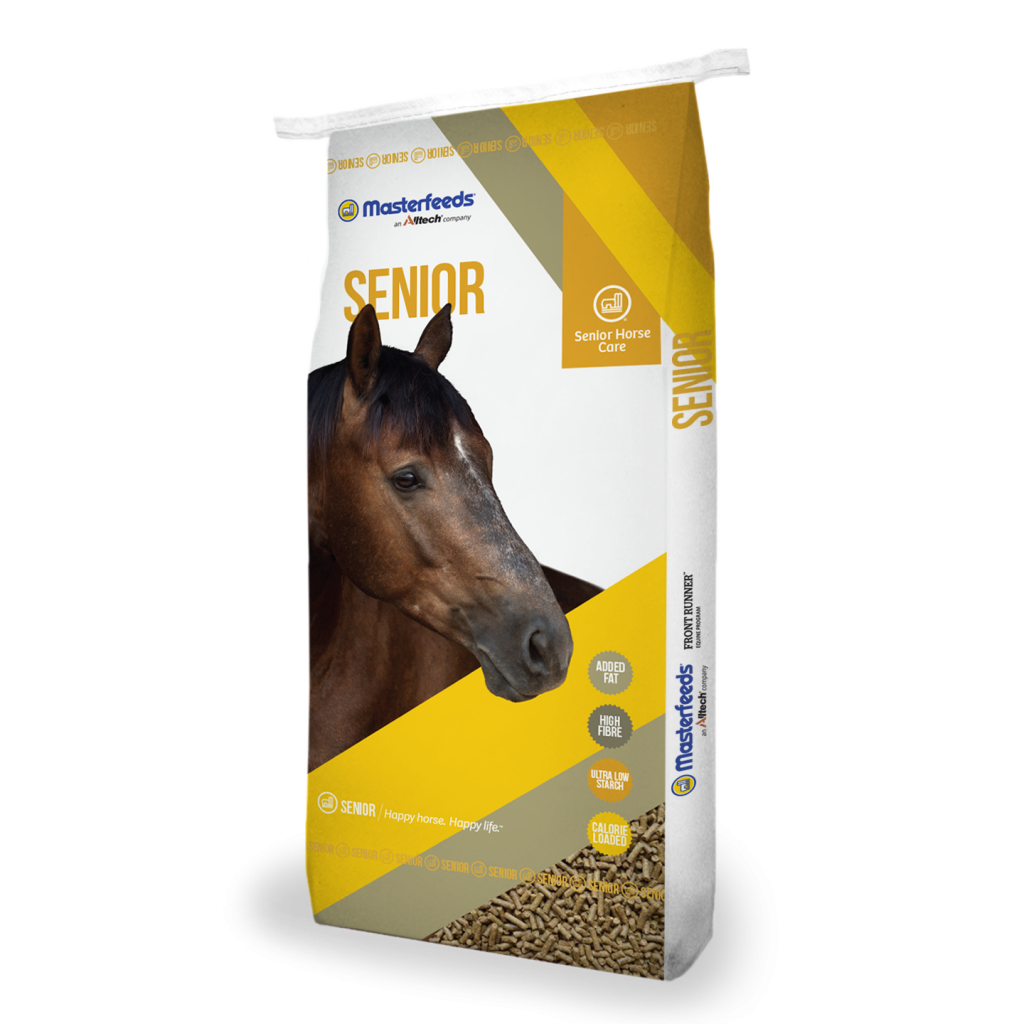
SENIOR (PELLET) EAST | WEST
FOR THE SENIOR HORSE OR PONY
Masterfeeds Senior is one of our lowest NSC complete feeds. It is ideal for the senior horse and also works very well for horses needing a low starch ration with added fat. The premium high calorie digestible fibre sources blended with 6% fat from all vegetable sources makes it a safe choice for working, pleasure, or retired horses who are very sensitive to added starch in their feed and need a low glycemic ration.
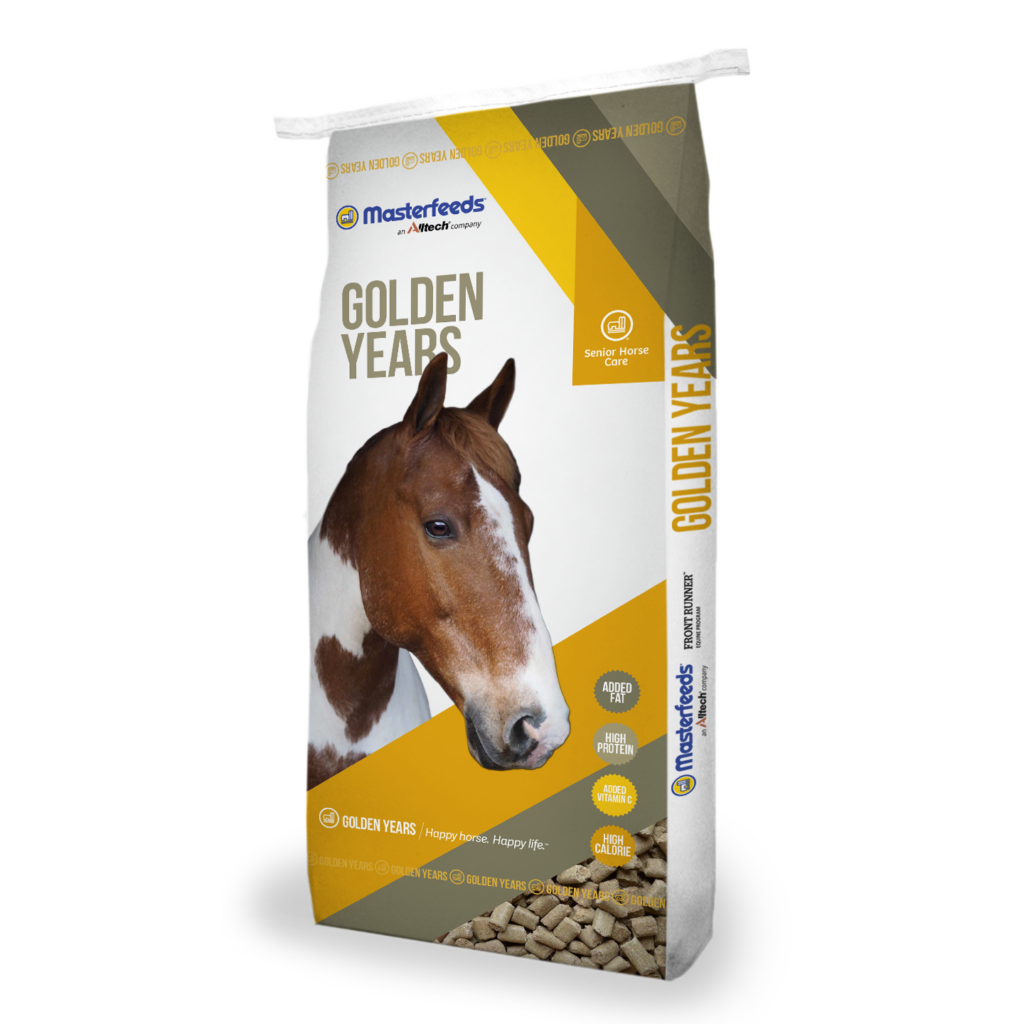
GOLDEN YEARS (CUBE) EAST | WEST
FOR THE SENIOR HORSE OR PONY
Masterfeeds Golden Years has been a favourite amongst horse owners for their senior horses for many years. This high calorie very digestible cube is fortified with premium vitamins, added Vitamin C, and contains a higher level of protein and lysine to maintain body condition on older horses. This palatable chunk encourages the horse to chew, which produces saliva and aids digestion. Older horses often drop their food, and the Golden Years Cube is much easier to pick up from the ground than a pelleted or texturized diet.
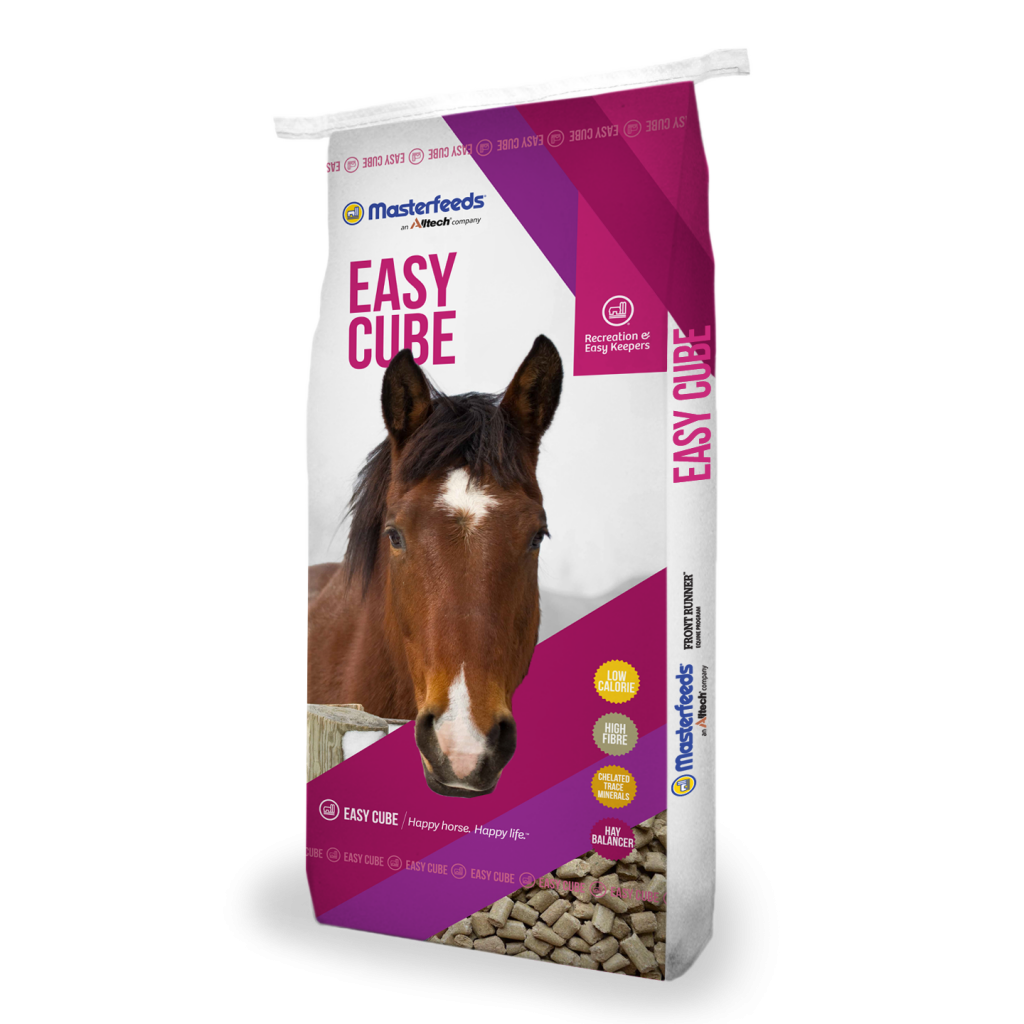
EASY CUBE (CUBE) EAST
FOR EASY KEEPERS & ALL CLASSES OF HORSES WHEN EXTRA NUTRIENTS ARE REQUIRED Masterfeeds Easy Cube, referred to as our hay balancer, is a 12% protein, mineral and vitamin supplement that can be used as a great stand alone feed for easy keepers. It’s designed to be fed with hay for horses who need little to no grain to maintain weight. It’s also a great choice for pregnant mares on good pasture, or as a vitamin mineral topdress in addition to other feeds.
Related Posts
- Winter Nutrition Tips
- Feeding the Mare and Foal
- Breaking Down Nutrition
- Spring Nutrition Tips
- Feeding for Performance
- All About Hay
- Fall Nutrition Tips
- Feeding Supplements
- Economical Horse Management & Feeding Tips
- The Beginner’s Guide to the Equine Digestive System
- Macronutrients: The “Big Three” of the Equine Diet
- Feeding the Racehorse
- Feeding the OTTB
- Feeding the Active Senior
